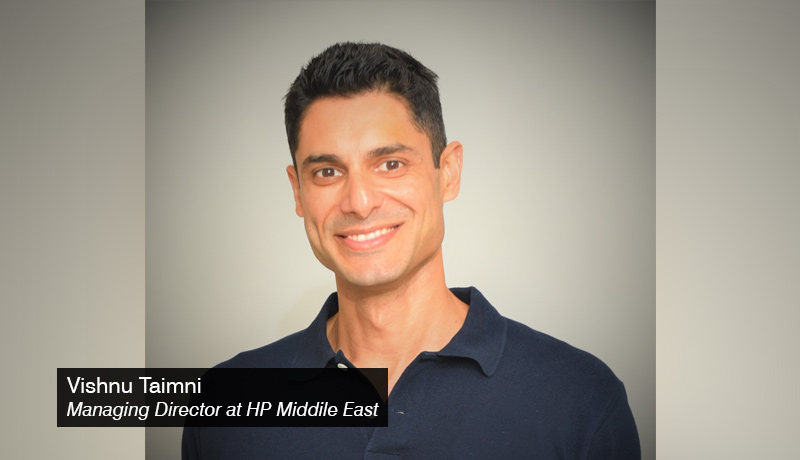
Attributed to: Vishnu Taimni, Managing Director at HP Middle East
We published our first environmental and social impact report 20 years ago. We did so because HP was founded on the belief that a corporation’s purpose extends well beyond profit. From our earliest days, our vision remained to create technology that makes life better for everyone, everywhere – every person, every organisation, and every community around the globe. We also felt that through developing technology in the service of mankind, we would be able to establish conditions that would allow business and society to coexist. With each passing year, our devotion to this belief has grown stronger. As a result, we’ve become a stronger organisation with a larger long-term influence on the world. Our effort, however, is far from complete.
As we look into the future, it is clear we are entering one of the most consequential decades in modern business history. A global pandemic continues to cause hardship and heartache around the globe. Climate change is wreaking havoc on many communities and jeopardizing the future of the planet we all share. And we are facing a long-overdue reckoning with the deep inequities and inequalities that prevent far too many people from reaching their full potential. While these are significant obstacles that will take time to overcome, we must see them as catalysts for progress.
The world around us is changing at a breakneck pace, and our efforts to shape the future we desire must keep up. At v, our ambition is to become the world’s most sustainable and just technology company. I am particularly proud of the progress we are making against our goals. Our 2030 Sustainable Impact agenda is designed to propel us forward. It adheres to HP‘s values, supports the United Nations’ Sustainable Development Goals, and prioritises activities where our technology, talent, and ecosystem can have the greatest impact.
The aim is to represent a new era of development over the next ten years, one in which climate change is reversed, human rights are widely upheld, and digital equity democratises opportunity for all. While building the industry’s most sustainable portfolio of products and solutions, we’re working towards a net zero carbon, fully regenerative economy. By 2040, we hope to have reached net zero greenhouse gas emissions across the HP value chain, with a 50% decrease by the end of this decade. By 2030, we aim to achieve 75% circularity in products and packaging.
In addition to this, we are advancing human rights, social justice, racial and gender equality across our ecosystem by cultivating a dynamic culture of diversity, equity, and inclusion. By 2030, we want to achieve 50/50 gender equality in HP leadership and ensure that women make up more than 30% of our workforce in technical and engineering roles.
As digital technology transforms seemingly every aspect of our lives, there’s a very real danger of more and more people getting left behind. Our goal is to accelerate digital equity for 150 million people by 2030. We’re creating the HP Partnership and Technology for Humanity (PATH) accelerator program as part of these efforts, with the goal of paving the path for digital fairness and inclusion in undisclosed areas.
Simply put, the bold climate, human rights, and digital equity efforts we’re implementing are exemplary. And, for those who still believe that this work is done at the expense of profit, consider this: our Sustainable Impact agenda helped us win more than $1 billion in sales in 2020, marking the second year in a row that we’ve done so. The actions we’re taking to address some of society’s greatest challenges will strengthen our communities while spurring innovation and growth across our business. But it’s going to take a lot of hard work and investment.